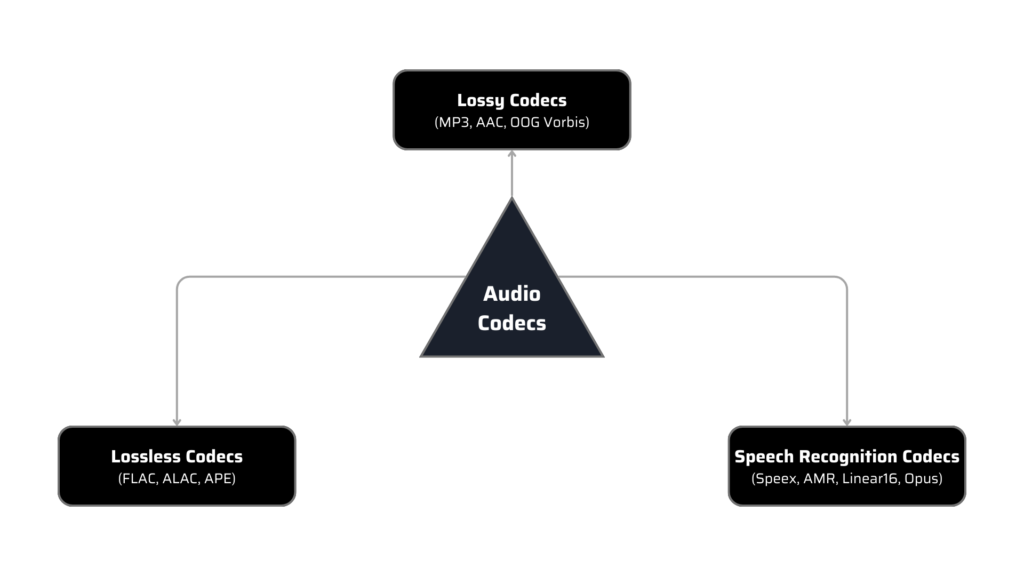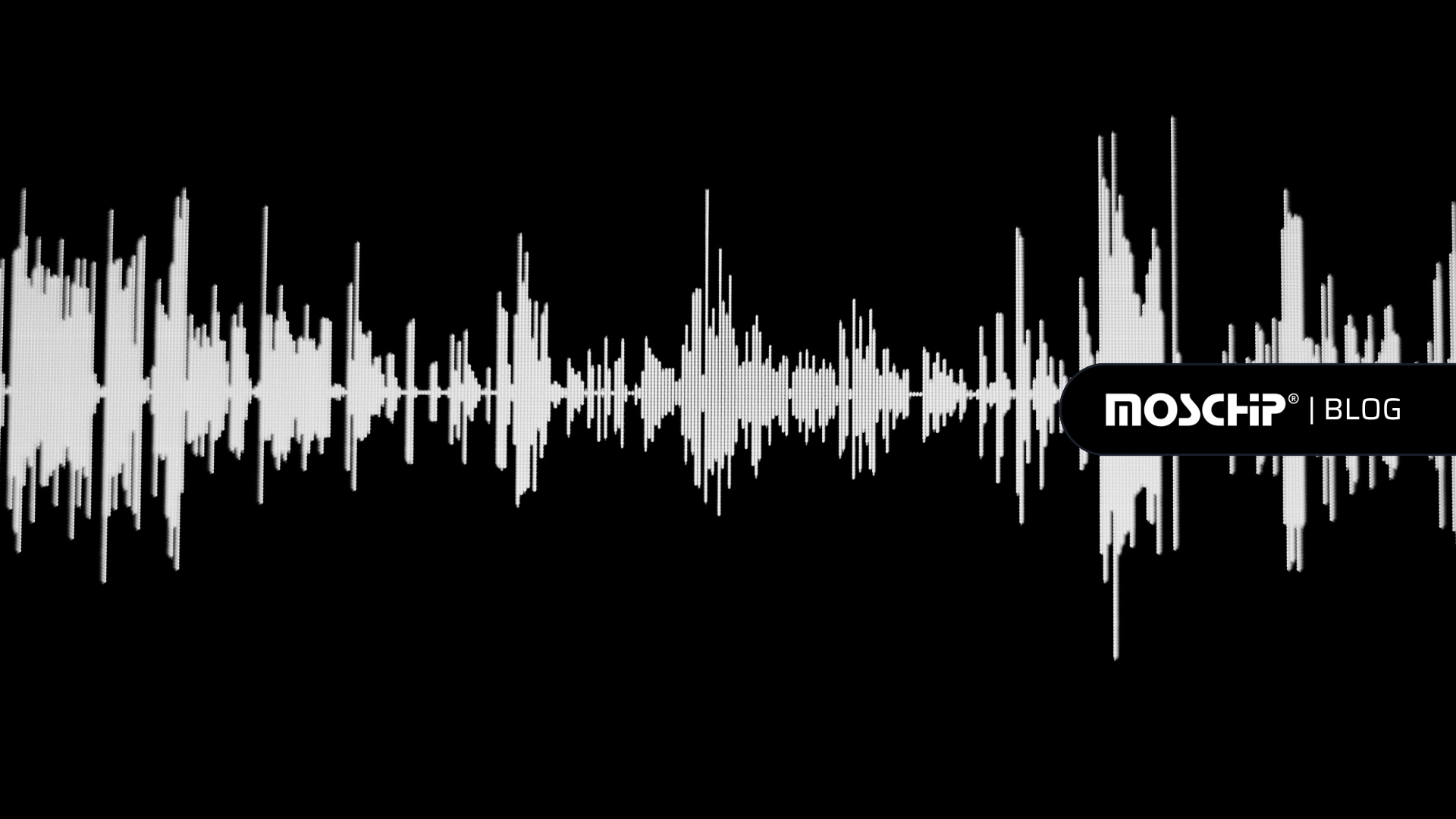Speech Recognition with Audio Codecs
Speech Recognition technology has become integral to our daily lives, powering virtual assistants, automated customer service, and hands-free communication. At the heart of these systems lies an essential component: Audio Codecs. This technology supports several applications, including virtual assistants, automated transcription services, voice-controlled devices, and customer service automation. Audio codecs play a vital role in the performance of speech recognition systems by compressing audio signals for efficient storage and transmission. Codecs such as Opus, AAC (Advanced Audio Codec), and MP3 ensure that speech audio is compressed without significant loss in quality, enabling faster and more accurate recognition.
The relationship between audio codecs and speech recognition is intricate and multifaceted. Codecs can significantly affect the intelligibility and clarity of audio signals, which are critical for accurate speech recognition. Understanding the interplay between codecs and speech recognition performance is essential for developers and engineers working to enhance audio systems.
The Role of Audio Codecs in Speech Recognition
Audio Codecs and their Importance in Digital Media
Audio codecs are digital tools or software algorithms designed to compress and decompress audio data. Their primary goal is to minimize file size for effective storage and transmission while not substantially decreasing audio quality. The choice of codec affects not only the quality of the audio output but also the speed of its transmission, which is crucial for maintaining user engagement in applications such as speech recognition and voice communication for internet streaming to telecommunication systems.
How Audio Codecs Encode and Compress Audio Data
Types of Audio Codecs
There are primarily two kinds of audio codecs:
1. Lossy Audio Codecs
Lossy Audio Codecs compress audio by discarding some data that is deemed unnecessary for human perception. This results in smaller file sizes but at the cost of some loss in audio quality. These codecs are widely used in streaming services and portable audio players.
- MP3 (MPEG-1 Audio Layer III): One of the most famous and widely used lossy codecs, MP3 offers a good balance between file size and audio quality. It removes frequencies that are less perceptible to human ears, resulting in highly compressed files that are ideal for portable devices.
- AAC (Advanced Audio Codec): Known for its superior compression compared to MP3, AAC provides better sound quality at similar bitrates. It’s the default codec for many platforms, including iTunes, YouTube, and Android devices, making it ideal for streaming services.
- OOG Vorbis: It is a free, open-source lossy audio codec that is designed to provide high-quality audio compression while maintaining a flexible, efficient structure. It uses advanced perceptual coding techniques to reduce file size without significantly sacrificing audio quality, making it particularly suitable for streaming and storing audio on various platforms.
2. Lossless Audio Codecs
Lossless audio codecs compress audio without losing data, hence keeping the original sound quality. These codecs are suited for professional audio editing, archiving, and seeking high-fidelity music.
- FLAC (Free Lossless Audio Codec): A renowned lossless codec notable for lowering file size while maintaining audio quality. FLAC is often used for high-quality music storage and archiving since it maintains all audio data and is widely supported by audio players.
- ALAC (Apple Lossless Audio Codec): Apple’s lossless codec is similar to FLAC but optimized for use in the Apple ecosystem. ALAC is used in Apple Music and iTunes, offering high-fidelity sound for audiophiles who prefer Apple devices.
- APE (Monkey’s Audio): A less common but highly efficient lossless codec, APE compresses audio files to smaller sizes than FLAC or ALAC, making it a good choice for high-quality audio storage with limited space.

Types of Audio Codecs
3. Audio Codecs for Speech Recognition
Certain audio codecs are specifically designed for speech rather than full-range audio, making them ideal for telecommunications and voice recognition systems.
Speex: Speex, a speech-optimized codec, offers high-quality compression that preserves critical vocal nuances for recognition accuracy. Speex is an open-source codec created primarily for voice compression. Unlike general-purpose codecs, Speex is fine-tuned to maintain speech clarity, even at lower bitrates. It includes features like voice activity detection (VAD) and noise suppression, which helps in isolating speech from background noise, making it a perfect fit for environments where audio quality may be compromised, such as call centers or noisy surroundings.
AMR (Adaptive Multi-Rate): AMR is a codec developed particularly for compressing speech in mobile telephony. It adapts its bitrate based on the network conditions, ensuring reliable voice communication even in bandwidth-constrained environments. It’s widely used in 3G and 4G networks and is optimized for both speech quality and data efficiency. This is used where bandwidth is often limited but accuracy is still critical.
Linear16: Linear16, a widely used audio codec for speech recognition, offers uncompressed, linear PCM audio that preserves original quality, capturing subtle speech nuances to enhance recognition accuracy. Beneficial in critical clarity environments like transcription, voice assistants, and telecommunications, Linear16 enables precise audio analysis without introducing compression artifacts that degrade speech intelligibility.
Opus: Opus is widely regarded as one of the best codecs for real-time applications, including speech recognition. It is a highly versatile codec that can handle both speech and music while maintaining low latency. What makes Opus stand out is its ability to dynamically adjust bitrates based on network conditions, ensuring a balance between quality and bandwidth efficiency.
All in all, integrating audio codecs into speech recognition systems is crucial for improving quality and efficiency. The codec choice directly impacts transcription accuracy and system performance, emphasizing the importance of selecting the right one for specific application needs. MosChip has expertise in audio processing and speech codecs to enhance speech recognition applications by integrating advanced codecs like AAC, FLAC, Dolby, etc. Additionally, MosChip’s commitment to continuous innovation enables the development of customized audio solutions that meet the unique needs of clients, driving improvements in voice recognition technology and overall user experience.
Author
-
Darshil is a Marketing professional at MosChip creating impactful techno-commercial writeups and conducting extensive market research to promote businesses on various platforms. He has been a passionate marketer for more than four years and is constantly looking for new endeavors to take on. When He’s not working, Darshil can be found reading and playing guitar.








